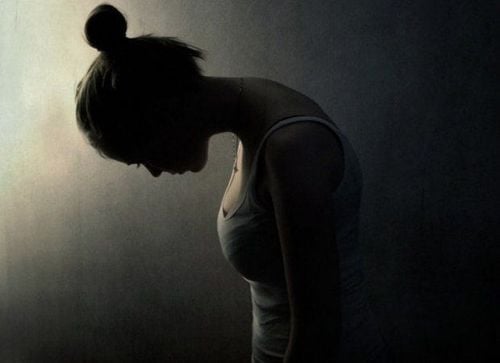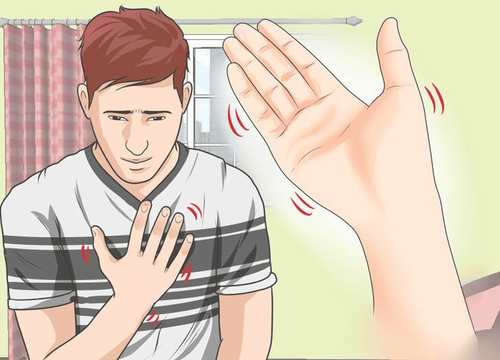This is an automatically translated article.
People tend to compare themselves with others. But this constant act of self-reflection can have a negative impact on your mental health. The most common manifestation is the feeling of self-hatred! To learn how to deal with this mental state, refer to the guide below.
1. What is self-hatred?
Before trying to get over self-hatred, it's important to recognize the signs of this condition. Self-hatred is a condition in which you often feel like you can't do anything good, don't deserve it, or don't care about good things. Here is a sign that you are prone to self-hatred:
Always think it's all or nothing: You see yourself as either good or bad. If you make a mistake, you feel like a failure, everything you built is ruined; Focus on the negative: Even when you have a good day, you tend to focus on the bad things that happened; Lack of confidence: She often feels unappreciated when compared to others; Seeking Recognition: You are constantly seeking the approval of others to define your worth. How you think about yourself depends on what others think of you; Difficulty accepting self-praise: If someone compliments you, you'll assume they're just being polite. You tend to deny them instead of actually accepting compliments; Try to fit in: You feel that you are always the outsider in every conversation, so you must try to fit in with others. You also feel like people don't like you and don't understand why they want to spend time with you; Another sign: When you receive criticism you always feel it is a personal attack; often feel jealous of others; fear that others will come into contact with them and believe that the relationship will end badly; fear of crowds ; afraid to set big dreams because they believe they can't achieve them; difficulty forgiving oneself when making mistakes; see the world through cynical and bleak eyes.

Con người thường có xu hướng so sánh bản thân với người khác và tự ghét bản thân
2. The reason why you hate yourself
Self-hatred emotions often stem from many factors such as:
Past haunting: Many people often hate themselves because they have experienced emotional trauma in the past. They may have been bullied, sexually abused or not cared for emotionally, not taken care of their health,... When they are not cared for, they tend to think that they are not good, self-denial of self-worth; Excessive Expectations: Sometimes we expect too much of ourselves and fail to achieve it. When we don't, we can get frustrated and feel like we've failed; Try to please others: Many people are only happy when they please others. This is bad thinking and it can lead to dependent behavior. And when you can't meet the needs of others, you may feel self-loathing, thinking that you don't deserve to be loved and respected; Perfectionist: A perfectionist often asks himself not to make mistakes. They expect themselves and those around them to be perfect. When you don't achieve your desired perfection, you can fall into feelings of shame, failure, loneliness, self-judgment, self-loathing; Psychological state: Feelings of self-loathing can be the result of depression or anxiety. For example, depression causes symptoms like hopelessness, feeling you're not good enough, etc. As a result, you may feel isolated and isolated from others; Social comparison: If you feel self-hatred, that's called upward comparison. This means that you tend to only focus on people who are better than you, self-loathing.
3. Negative effects if you hate yourself
Feelings of self-hatred affect many aspects of life. It can prevent you from making important decisions, difficult to take risks, not connecting with others and difficult to achieve desired goals,... Specifically:
With yourself: You lower yourself low self-esteem, seeing oneself in a negative way; With work: Since work is often performance-based, feelings of self-loathing can affect your performance. When you feel useless, it will be difficult for you to take on larger projects or cooperate with others. You also often feel resentment towards co-workers or put yourself down for lack of performance; Social relations: Your feelings of self-loathing may make it difficult for you to make friends or maintain a good relationship with others; Family relationships: There are many cases of feelings of self-hatred stemming from trauma in the family. As a result, you may feel distressed by being constantly in contact with loved ones and recalling unpleasant memories of the past; Relationships: People who experience self-hatred often find it difficult to initiate a romantic relationship because you tend to resist closeness and intimacy. Besides, you always have thoughts of worrying that that person will see himself as imperfect and thus you will avoid loving relationships.

Cảm xúc tự ghét bản thân tác động tới nhiều khía cạnh của cuộc sống
4. Revealing how to deal with self-hatred
Here are some notes to help you start your first journey on the path of self-love, dispel negative thoughts:
4.1. Identify where the root of this emotion comes from If you feel self-hatred all the time, sit back and try to figure out why is causing this feeling. You can keep a diary at the end of the day, record some notes about: What you did, how you feel in different activities, who is with you throughout the day,... If you don't like writing diary, you can record a short video or record it.
This will help you identify the cause of the negative thought. From there, you can find ways to avoid these thoughts.
4.2. Fight Your Negative Thoughts When you feel self-hatred, talk to yourself. For example, if you think “I hate myself” then ask yourself “why”. If the answer is "I'm so ugly in this outfit" or "I ruined that meeting", then negate these thoughts yourself, telling yourself that this is the wrong way of thinking.
You can imagine that there are superheroes that you like or that one of your best friends has come out and fought those negative thoughts. This will help strengthen your belief that self-hatred can be completely dispelled.
4.3. Self-talk Self-hatred often comes up in moments when you feel like you don't love yourself. So, when you have this feeling, it's best to write down a list of the things you're proud of yourself. If you can't think of anything, don't worry. You can write down the things that you don't hate about yourself.
For example: You cook quite well, you can take care of a healthy pet, you know how to grow flowers,... You should put this list in places where you can see it every day. When thoughts of self-hatred arise, take a deep breath and say aloud the strengths of yourself that you have written down. Just building it into a daily habit will help you be more confident, love yourself more.

Cảm xúc tự ghét bản thân hoàn toàn có thể xua tan được
4.4. Shifting negative thoughts to another point of view You can deal with negative thoughts and feelings of self-hatred by shifting it to a different point of view.
For example, you can look at a situation and focus on the positive instead of the negative. It's as simple as: Instead of saying "I gave a terrible project presentation," you can modify your statement to "I feel like I didn't do very well in today's presentation." It's a small change, but it will help you gradually improve your confidence.
4.5. Surround yourself with people who make you happy Feelings of self-hatred can make you want to isolate yourself. You may feel like you're not good enough, or don't deserve the attention of your friends and family. Or you feel like no one wants to be with you.
However, according to experts, you should connect with others to improve mental health because communicating with people will help us feel more confident, love ourselves more. It creates an environment where we feel valued and cared for.
So, to combat negative emotions, spend time with loved ones (whether friends, relatives or partners). We can go to coffee, watch movies together or go for a walk, go to the gym together,... Social interaction will help you recharge yourself more cheerfully.
4.6. Be more lenient This can be the hardest thing to do, but it's probably the most helpful. Tolerance means accepting your negative thoughts, mistakes, and failures and treating them as messy moments that everyone experiences in life. Be tolerant, forgive yourself the way you forgive others.
Next time you feel yourself hating yourself, you can admit to yourself that it's true that you're feeling down, but remind yourself that it's okay. Comfort yourself that everyone makes mistakes and that mistakes don't define who you are.
Of course, self-compassion doesn't happen overnight. But studies show that, like meditation, this emotion can be trained.
4.7. Get help when you need it Remember that you are not alone on your psychological care journey. There are many people who are having the same problem as you and most of them need a little help to get through.
Therefore, you should follow the above advice with the help of a trusted psychologist. There is no shame in asking for someone else's help. In fact, this is the best way we can deal with self-hatred and boost your confidence.
Remember that dealing with self-hatred takes time. Try to follow the above tips to dispel negative emotions and love life more.
Please dial HOTLINE for more information or register for an appointment HERE. Download MyVinmec app to make appointments faster and to manage your bookings easily.
Reference sources: healthline.com, verywellmind.com












